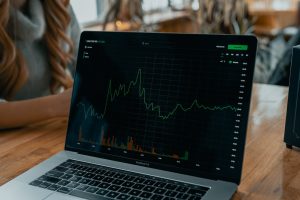Forex trading is a lucrative business that involves exchanging one currency for another. Banks, being one of the largest financial institutions, trade forex on a large scale. Banks trade forex for their clients, as well as for their own benefit.
Forex trading is primarily driven by supply and demand, which are influenced by economic and political factors. Banks use their vast resources and expertise to analyze the market trends and make trading decisions based on their assessment of the market. The following are some of the ways banks trade forex:
1. Spot Transactions
Spot transactions involve the immediate exchange of one currency for another at the current market rate. Banks trade forex through the spot market, which is the largest and most liquid market in the world. Banks use their vast network of contacts to access the interbank market, where they can buy and sell currencies at the best available rate.
Banks also trade forex through electronic trading platforms, which provide them with real-time access to the market. The platforms allow banks to execute trades quickly and efficiently, enabling them to take advantage of market opportunities as they arise.
2. Forward Transactions
Forward transactions involve the exchange of currencies at a future date at a predetermined exchange rate. Banks use forward contracts to hedge against currency risk and lock in exchange rates for their clients. Banks also use forward contracts for their own benefit to speculate on future exchange rate movements.
Forward contracts are customized to meet the specific needs of the client, and the terms of the contract are negotiated between the bank and the client. The contracts are settled on the maturity date, and the exchange of currencies takes place at the predetermined rate.
3. Swaps
Swaps involve the exchange of currencies at a predetermined rate, with an agreement to reverse the transaction at a future date. Banks use swaps to manage their currency risk and to improve their liquidity position.
Currency swaps involve the exchange of interest payments in different currencies, with an agreement to exchange the principal amount at the end of the contract. The interest payments are calculated based on the notional amount of the contract, which is the agreed-upon amount of currency.
4. Options
Options give the holder the right, but not the obligation, to buy or sell a currency at a predetermined rate at a future date. Banks trade forex options to hedge against currency risk and to speculate on future exchange rate movements.
Options are customized to meet the specific needs of the client, and the terms of the contract are negotiated between the bank and the client. The price of the option is determined based on the current market rate, the strike price, the time to maturity, and the volatility of the currency pair.
In conclusion, banks trade forex on a large scale, using their vast resources and expertise to analyze market trends and make trading decisions. Banks trade forex through spot transactions, forward transactions, swaps, and options, depending on their specific needs and the needs of their clients. Forex trading is a highly competitive and lucrative business, and banks play a significant role in the market.






